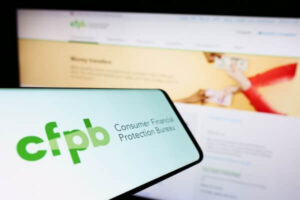Consumer Protection Group Earns Victory Amid Legal Challenges
A new federal agency aimed at enforcing consumer finance laws tangled with its second high-profile target since opening its doors less than two years ago.
The Consumer Financial Protection Bureau, in conjunction with the Federal Deposit Insurance Corporation, announced earlier this week that more than 3.5 million Discover Bank credit cardholders can expect a little extra cash coming their way. This follows claims that Discover Bank engaged in deceptive telemarketing and misleading sales strategies.
Discover agreed to refund $200 million dollars and pay an additional $14 million in fines. While that seems like a big chunk of money headed to Discover cardholders, it works out to only $57 per customer. Still, the two-year-old Consumer Financial Protection Bureau (CFPB) counted this as a victory for itself and consumers.
Bureau representatives said the joint investigation found that Discover used misleading language to convince customers to pay for identity theft protection, credit score tracking and other purported protective programs. The investigating agencies found that, in some cases, Discover sales representatives were paid incentives to enroll customers in these programs. Many consumers were led to believe the services were free.
“Discover’s telemarketing scripts contained many misrepresentations, implying that these products were free of charge and were simply ‘added benefits,’ ” said CFPB director Richard Cordray.
Other Bureau Projects
Since it started, the CFPB has launched dozens of enforcement reviews and issued more than 100 subpoenas demanding information from companies that include financial lenders, for-profit colleges and mortgage servicers.
In July, the bureau’s first significant enforcement action was taken against Capital One for deceptive marketing practices. The bureau charged that Capital One tricked customers into buying products such as credit monitoring by telling them it was free. The company agreed to pay $140 million to about two million customers.
While some may see the bureau’s work as a score for the consumer, many lawmakers aren’t cheering. Earlier this month, a group of Republican state attorney generals refused to sign a cooperation agreement with the bureau, arguing that the law that created the bureau is unconstitutional.
Lawmakers said the 2010 Dodd-Frank Act, which created the CFPB, gives the government too much power. Attorney generals from Michigan, Oklahoma and South Carolina filed a complaint in U.S. District Court of the District of Columbia, saying the portion of Dodd-Frank that allows the U.S. Treasury Secretary to liquidate and close failing financial industries threatens U.S. financial stability. State leaders argue that that portion of Dodd-Frank puts too much power in the hands of the government and puts community banks and state pension funds at risk.
The three states joined the lawsuit filed in June by the State National Bank of Big Spring (Texas) and two other conservative groups.
Sources:
- Dougherty, C. (2012, September 12). Republican State AGs Resisting Cooperation With CFPB. Bloomberg. Retrieved from http://www.bloomberg.com/news/2012-09-19/republican-state-ags-resisting-cooperation-with-consumer-bureau.html
- Ellis, B. (2012, September 24). Discover to refund $200 million to customers for deceptive telemarketing. CNNMoney. Retrieved from
- http://money.cnn.com/2012/09/24/pf/discover-penalty-telemarketing/index.html?iid=SF_PF_LN
- Grim, R. (2012, July 18). CFPB Announces Enforcement Action Against Capital One. Huffington Post. Retrieved from http://www.huffingtonpost.com/2012/07/18/cfpb-capital-one_n_1682578.html
- Wagner, D. (2012, September 12). AP IMPACT: Aggressive start for consumer bureau. Associated Press. Retrieved from http://news.yahoo.com/ap-impact-aggressive-start-consumer-bureau-181658735--finance.html


















